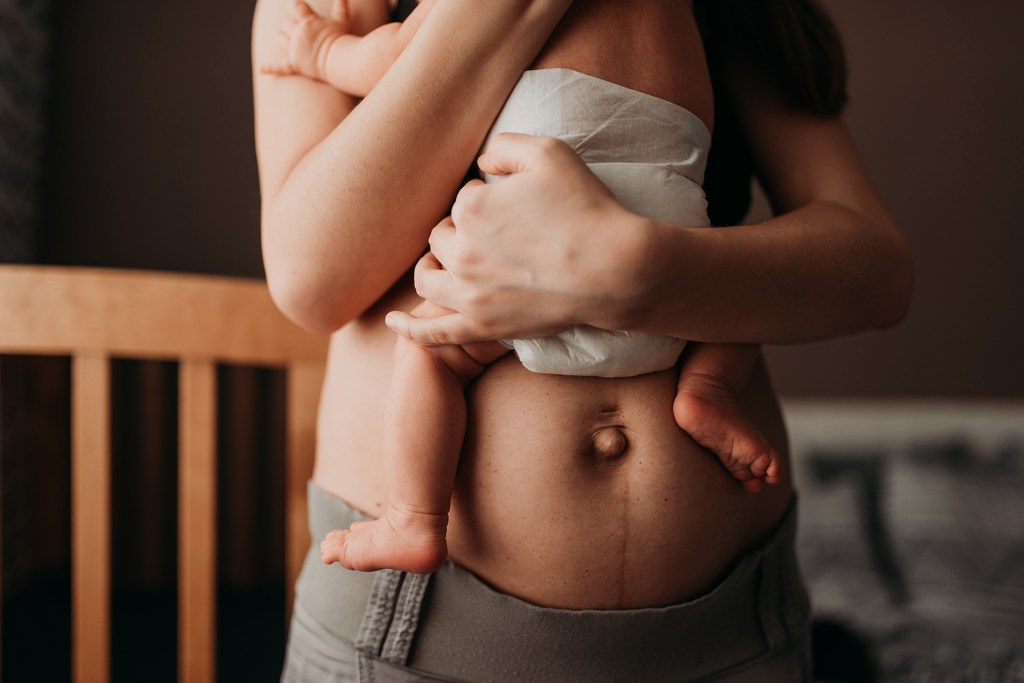Your cart is currently empty!
Do I Have Postpartum Depression?

I am [Molly Nourmand](https://www.mollynourmand.com/). I’m a licensed psychotherapist, yoga enthusiast, and mother. My personal experience with postpartum depression led me to create [Life After Birth®](https://www.mollynourmand.com/life-after-birth), a support circle centered on the mother. The focus of my practice is now perinatal mental health — in other words, pregnant people and new parents.
Do I Have Postpartum Depression?
“Is this normal?” is the most common question I receive from new parents. Let’s unpack that.

Matrescence
Matrescence is the psychological birth of a mother, similar to adolescence. This involves identity shifting as well as hormonal, emotional, and bodily changes. Therefore, the awkward metamorphosis you feel is normal. Even though matresence and Postpartum Depression (PPD) may have some overlapping symptoms, the symptoms are not clinically significant.

Baby Blues
Baby Blues are caused by the sudden change in hormones after birth, combined with the stress of caring for a new baby, sleep deprivation, and recovering from delivery. You might feel more tearful, irritable, overwhelmed, and emotionally fragile than usual. Generally, this will start a couple days after delivery, peak around week one, then taper off by week two on its own. Up to 80% of birthing people experience the Baby Blues. Since it affects the majority, that makes it pretty normal. However, if your symptoms do not go away after a few weeks or get worse, or if they appear after the first two weeks of giving birth, then you may be suffering from a Perinatal Mood & Anxiety Disorder (PMAD).

Postpartum Depression (PPD)
Approximately 15% of women experience Postpartum Depression (PPD) following childbirth. It’s likely much more than this (especially with the pandemic) but it is grossly under-reported due to shame, denial, and/or fear of one’s baby being taken away. Percentages are even higher for women dealing with poverty and can be twice as high for teen parents. People of color are also more susceptible to PPD and are less likely to receive treatment. Ten percent of women experience depression in pregnancy. In fact, perinatal depression is the most common complication of childbearing. Symptoms differ for each individual but might include:
- Feelings of anger or irritability
- Lack of interest in the baby
- Appetite and sleep disturbance (more than expected with new baby; sometimes manifests as insomnia even when baby sleeps)
- Crying and sadness
- Feelings of guilt, shame, or hopelessness
- Loss of interest, joy, or pleasure in things you used to enjoy
- Possible thoughts of harming the baby or yourself
Although there may be some shared symptoms with Matrescense and the Baby Blues, what differentes PPD is the level of functioning.
If you think you or someone you know is experiencing PPD, reach out to a healthcare provider as soon as possible. In addition, Postpartum Support International will call you back within 24 hours to help connect you with resources in your area. There is also a National Suicide Prevention Lifeline: 1-800-273-8255.

Postpartum Obsessive Compulsive Disorder (PP OCD) & Postpartum Psychosis (PPP)
If you are having intrusive thoughts, including images of hurting your children that are disturbing to you, then you may have Postpartum Obsessive Compulsive Disorder (PP OCD). A woman experiencing Postpartum Psychosis (PPP) experiences a break from reality. In her psychotic state, she believes she would be protecting the baby by harming it. Although PPP is rare, occurring in only .1-.2% of birthing people, it is a life-threatening emergency that warrants immediate medical attention to safeguard the life of both mother and infant. A postpartum psychotic episode should not be confused with other PMADs.

Treatment
If what you’re experiencing falls out of the range of normal and is not going away on its own, it is imperative that you receive support. It’s not only for you, but for your family as well. There is no need to suffer unnecessarily hoping symptoms will go away. PMADs are treatable and temporary. Here are some suggestions that you might find supportive for your recovery:
- Contact your healthcare provider (e.g. OB-GYN, pediatrician, therapist) and get connected with a therapist who specializes in PMADs. Discuss the necessity of breastfeeding-safe medication (if you are feeding your baby from your body).
- Bolster your support system. Reach out to trusted friends and family, and/or if resources allow, hire someone to help with the baby and/or housekeeping.
- Find a group for new moms (such as Life After Birth®) for connection, community, and support.
- Prioritize sleep and rest.
- Go outside and get fresh air and sunlight daily, even if it’s just to get the mail.
- Keep a bottle of water near you and drink from it all day and night; refill when empty.
- Eat every few hours.
- Keep taking your prenatal vitamins.
- Go for daily walks (if your recovery allows).
- Seek out mind-body practice like yoga, meditation, and/or breathwork to help manage stress.
**Statistics and information on PMADs from Postpartum Support International*










